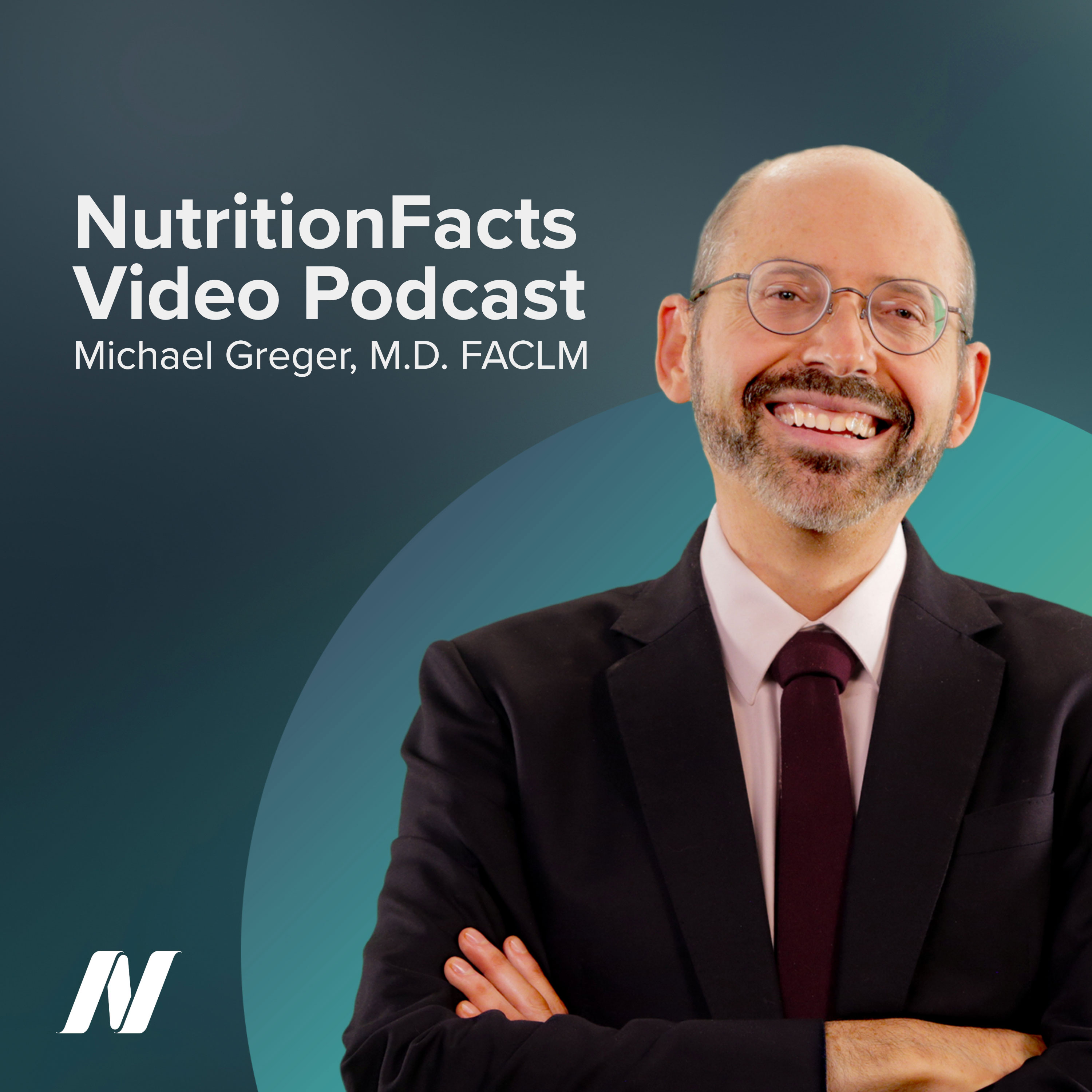
Reversible Causes of Prematurely Graying Hair

NutritionFacts.org Video Podcast
Deep Dive
Shownotes Transcript
"The graying of hair: the age-related exhaustion of the pigmentary potential" is thought to be mainly genetic, with a family history of premature graying present in up to 90% of cases. But if the rate of graying is caused by oxidative damage, as I described in the last video, what role might be played by antioxidants and systemic oxidative stress outside of the hair follicle?
Those with premature graying do seem to have higher circulating markers of oxidative damage and lower antioxidant levels in blood. The higher prevalence of premature graying among smokers also supports this possibility that exogenous free radicals may speed up the accumulation of oxidative insults in the aging hair follicle.
Obese individuals also tend to gray early, consistent with the oxidative stress concept, though drinkers do not. Alcohol consumption clearly causes oxidative stress, yet is not significantly associated with premature graying.
Those trying to maximize their intake of antioxidants by eating plant-based must deal with the Achilles heel, the risk of vitamin B12 deficiency for those not actively supplementing their diets with B12, whether from supplements or fortified foods. B12 deficiency is one of the rare reversible causes of hair graying through some unknown mechanism. Thankfully, hair can repigment after B12 repletion.
Another reversible cause is hypothyroidism, which can be reversed with thyroid hormone replacement. Rather than oxidative stress, what about regular stress? Does fight or flight turn hair white? Marie Antoinette syndrome refers to the rapid graying of hair due to stress or trauma, based on the likely apocryphal story of her hair going completely white on the eve of her beheading.
Sporadic validated reports of sudden graying have been attributed to the sudden diffuse loss of pigmented hairs, leaving the gray hairs behind, offering the illusion of transmogrification.
In mice, acute stressors can lead to hair graying via rapid depletion of melanocyte stem cells, perhaps because psychological stress may lead to oxidative stress based on cross-sectional studies that link higher perceived stress to higher levels of oxidative DNA damage. Why might we even have evolved to turn gray in response to stress?
Drawing on an analogy from the authority afforded silverback mountain gorillas, stress-induced graying may confer a school-of-hard-knocks evolutionary advantage for leadership. For real-world consequences, check out the results of this study.
Hospitalized patients treated by gray-haired attending physicians were found to be significantly more likely to make it out of the hospital alive than those attended by darker blonde-haired docs. As a mark of age, gray hair may also be a mark of experience.
But might having gray hair yourself increase your own chances of ending up in the hospital? Might premature or extensive graying be a sign of accelerated aging and subsequent risk of age-related diseases? The data is mixed.
Some studies suggest the degree of graying is an independent risk factor for coronary artery disease, for example based on higher coronary calcium scores in grayer individuals. However, by far the largest study, which followed 13,000 men and women for 16 years, found no correlation between graying or hair loss or wrinkles and overall mortality.
The only exception appeared to be a small fraction of men without any gray hair, just 6% of those in their 50s, 2% of those in their 60s, and 1% of those in their 70s, who did seem to have a significantly lower mortality.